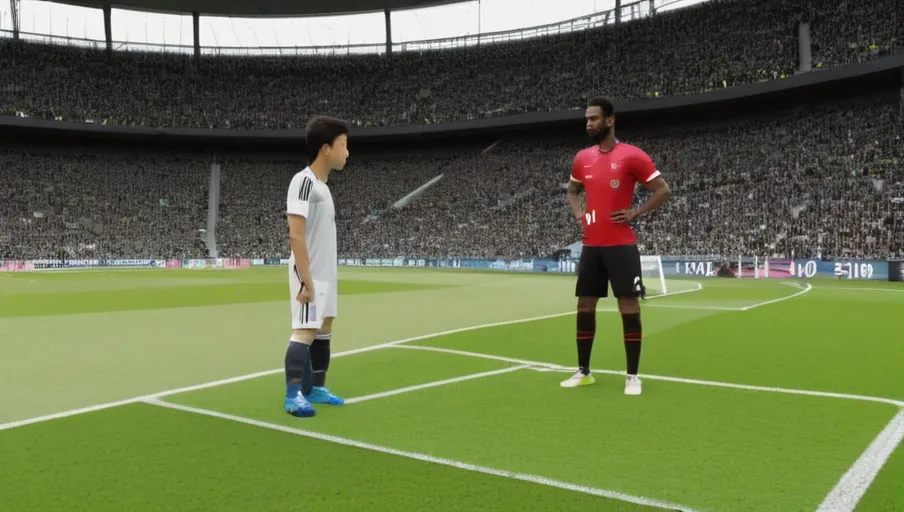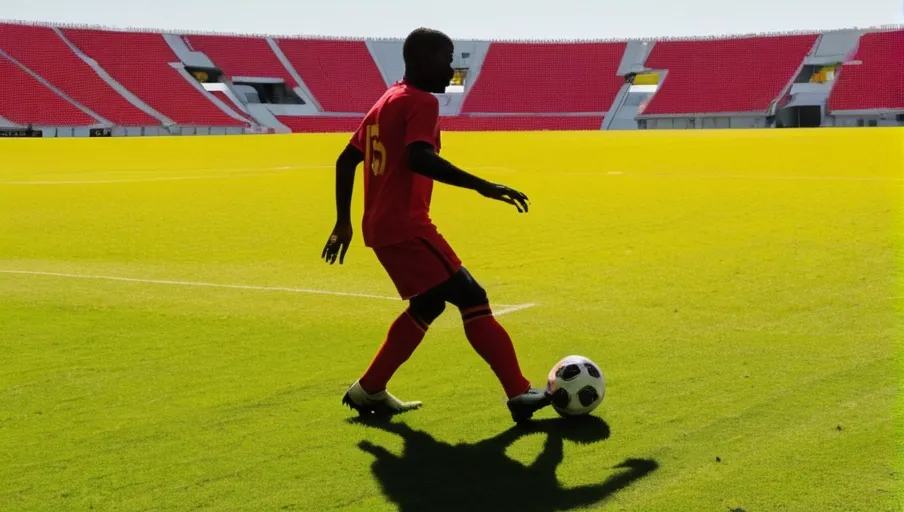
Do you ever wonder if soccer players are short?
It’s a valid question with a complex answer. Recent studies suggest that soccer players are not necessarily shorter than other athletes, but that there are physiological factors, diet, and genetics that may influence height.
Let’s take a closer look at why some soccer players may appear shorter than their counterparts.
- Soccer players come in all shapes and sizes, with heights ranging from 5 feet 4 inches to 6 feet 2 inches.
- Height is not a determining factor in the overall success of a soccer player.
- Shorter players often have advantages in terms of agility, reaction time, and ball control.
- Genetics, nutrition, and exercise play a role in determining a soccer player’s height.

You may be wondering if soccer players are short. To answer this question, it’s important to look at the data.
Studying the footwear of professional soccer players, as well as analyzing the coaches, provides valuable insight into the height of soccer players. Generally, a soccer player’s height ranges from 5 feet 4 inches to 6 feet 2 inches. This wide range of heights shows that soccer players come in all shapes and sizes.
There’s no one-size-fits-all answer regarding the height of soccer players, as some are short and some are tall. It can be said, however, that the average soccer player is slightly taller than the average person.
That being said, it’s clear that soccer players come in all heights, from very tall to very short.

Examining the correlation between height and soccer performance can help you understand the link. Coaching techniques and training regimens tailored to the individual can be crucial in maximizing performance, regardless of height.
Height can be advantageous in certain situations, such as aerial duels or long-distance shooting, but it’s by no means a determining factor in overall success. Research has shown that shorter players often have greater agility, quicker reaction times, and improved ball control.
This means shorter players may have an edge when it comes to close control and dribbling, but taller players can still make up ground in other areas. Ultimately, a player’s success will come down to their attitude, physical conditioning, and technique.

Physiological factors such as genetics, nutrition, and exercise all play a role in how tall soccer players become. Those factors can affect muscle development and training methods, both of which can have a big impact on soccer performance.
Muscles: Strength, power, and speed are all important for soccer players, and genetics, nutrition, and exercise can all help build these muscles.
Training: Different training methods can help develop speed, agility, and coordination and can make athletes more competitive.
To sum up, a variety of factors, including genetics, nutrition, and exercise, affect soccer players’ height. These factors can help build muscle and enhance performance, making them an important part of any soccer player’s training.

Compared to other athletes, soccer players have unique physiological factors that influence their performance and height. | Sport | Average Height |
| —- | ————- |
| Soccer | 5’7″ |
| Basketball | 6’7″ |
| American Football | 6’2″ |
| Swimming | 5’9″ |
| Baseball | 6’0″ |
Athletes invest time and energy in physical fitness and training techniques to achieve optimal performance. Soccer players, while typically shorter than their counterparts, possess strength, agility, and skills that give them an advantage on the field. As a result, height does not always define the success of a soccer player.

You can investigate the impact of diet on your height as a soccer player to maximize performance. Nutrition strategies, training regimens, and adequate rest are key components to success on the pitch.
Nutrition:
Eating nutrient-dense foods
Making sure to get enough calories
Training:
* Strength training
* Cardiovascular exercise
By taking control of your diet, you can reach optimal performance and maintain a healthy weight. Eating certain foods can help you build muscle, while avoiding others can prevent excess weight gain.
Additionally, a well-rounded training regimen can help you gain strength and increase your flexibility. By incorporating these strategies into your lifestyle, you can reach your peak performance.

Genetics can play a role in determining your height as a soccer player, impacting your performance on the pitch. From a data-driven perspective, research has shown that genetic factors contribute to the height distribution of soccer players.
In particular, studies indicate that a portion of the observed height variation among soccer players is attributed to genetic variation. Additionally, those with a greater genetic predisposition to stature may have a greater chance of success in the sport due to their increased height.
Furthermore, height is an important factor in certain soccer positions, making genetic factors more important in those particular roles. Therefore, genetics can be a determining factor in a soccer player’s success due to its direct impact on their height.
On the whole, it appears that soccer players are, on average, shorter in height than other athletes. Taking into account the physiological and genetic factors that can affect height, as well as the impact of diet, it seems that there’s no single answer to the question of whether soccer players are short.
Ultimately, a person’s height is determined by a combination of many factors, and this is something that applies to all athletes, not just soccer players.